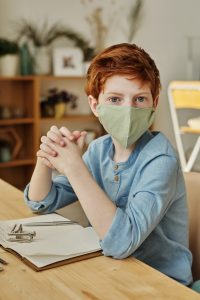The project at a glance
-
Start date:01 Jan 2021
-
Duration in months:24
-
Funding:Œuvre Nationale de Secours Grande-Duchesse Charlotte
-
Principal Investigator(s):Claudine KIRSCH
About
The voice of children is largely absent during this global pandemic despite the Convention on the Rights of the Child and despite the need for their participation and well-being to help us achieve sustainable development. The project COVID-Kids II strengthens the promotion and protection of children’s rights. In this multidisciplinary and mixed-method project we examine children’s daily experiences at home and at school, their attitudes and preferences as well as their participation, mental health and well-being. The project includes three studies: – Study 1: a qualitative longitudinal study consisting of interviews with the 22 children interviewed in 2020 in the study COVID-Kids I (PI Claudine Kirsch) – Study 2: a questionnaire for children aged 6-16 on their learning, development and subjective well-being (PI Claudine Kirsch; collaboration with LISER). The survey can be completed until 15 July 2021 on covidkids-uni.liser.lu – Study 3: a quantitative cross-sectional study exploring the psychological well-being, mental health and participation of vulnerable children in alternative care in Luxembourg. (PI Pascale Engel de Abreu) Expected outcomes: The results of Studies 1 and 2 can help parents, professionals, and policy makers develop appropriate educational measures to create an equitable learning environment, choose appropriate teaching methods and provide differentiated programmes to mitigate educational losses. They could guide the design of school-based or psycho-social interventions that take into account the varied experiences of children. They can also assist parents and other social actors to help children reach their full potential. The result of Study 3 can inform current and future policy choices and actions regarding the well-being and mental health of vulnerable children in alternative care. The situation of children in out-of-home care is not well understood. The COVID-19 pandemic is likely to have increased the risk of emotional stress due to a combination of negative interactions and experiences, a high risk of pre-existing mental health problems, and the stress and anxiety of living through the pandemic in an out-of-home context. The project helps strengthen and develop the support systems in place
Project team
-
Claudine KIRSCH
-
Pascale ENGEL DE ABREU
-
Cyril WEALER
-
Džoen BEBIC-CRESTANY
.
Keywords
- COVID
- Pandemic
- Children
